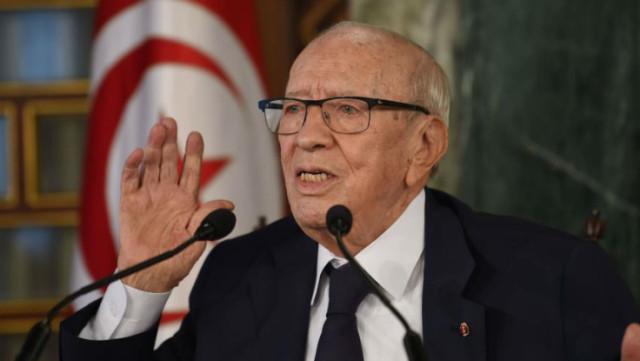Tunisian President Kais Saied has announced that the presidential election will hold on October 6, with expectations that he will seek a second term.
Despite being elected in 2019, Saied has yet to officially declare his candidacy.
The opposition claims that fair and credible elections cannot occur unless imprisoned politicians are released and the media can operate without government's pressure.
Several opposition parties, including the Ennahda Islamist party and the Free Constitutional Party, have accused the government of attempting to exclude Saied’s main rivals from the election.
Abir Moussi, leader of the Free Constitutional Party and a prominent candidate according to opinion polls, has been imprisoned since last year on charges of harming public security.
Her party claims her imprisonment aims to remove her from the election race, a claim the authorities deny.
Other candidates such as Safi Saeed, Lotfi Maraihi, Nizar Chaari, and Abd Ellatif Mekki, face prosecution for alleged crimes like fraud and money laundering.
Mondher Znaidi, a notable potential candidate residing in France, is also under investigation for suspected financial corruption.
In 2021, Saied seized almost all powers, dissolved parliament, and began ruling by decree, a move the opposition described as a coup.
Saied defended his actions as legal and necessary to end years of rampant corruption among the political elite.




















